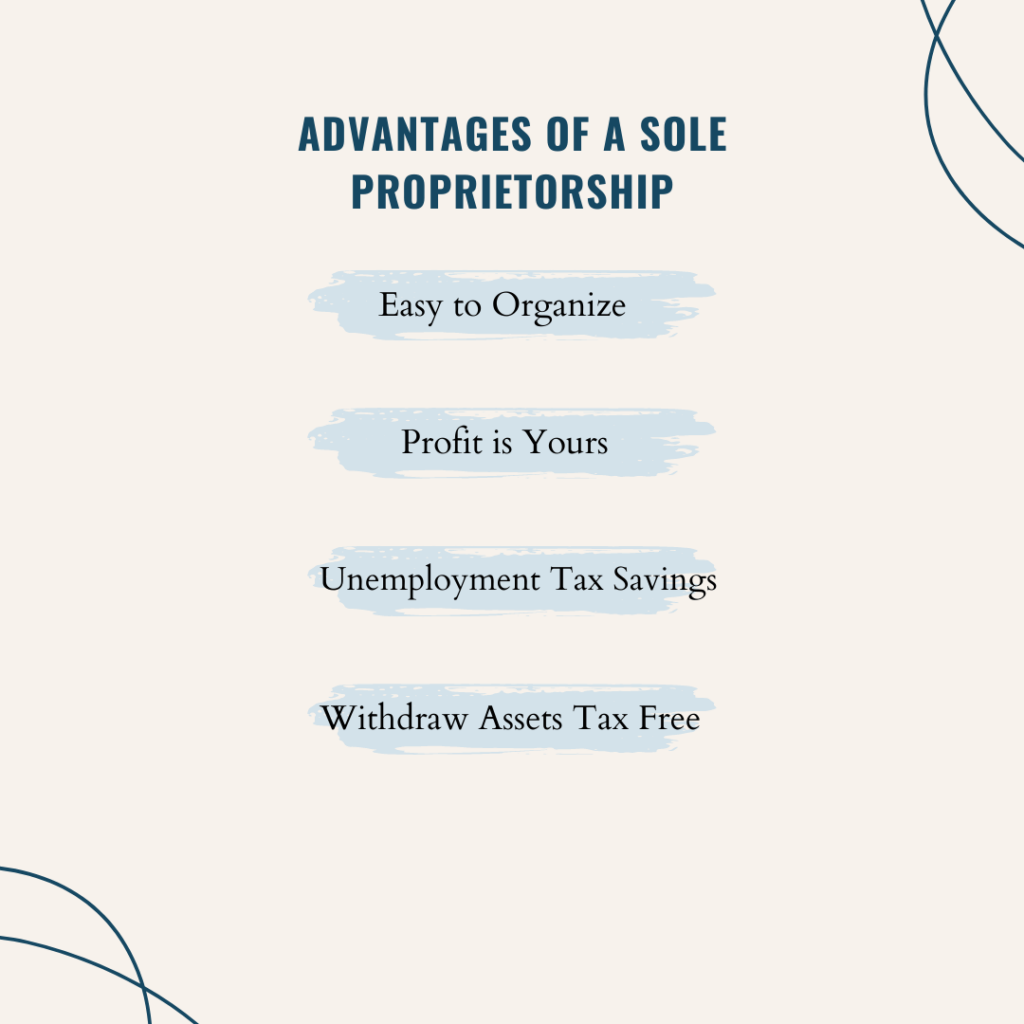A sole proprietorship is one of the most common ways in which to organize a new start up. For example, many self-employed individuals, home based businesses, and small cottage industries operate as sole proprietorships. The list can go on, but generally, sole proprietorships are one or two person businesses. As a sole proprietor, you are the sole owner of your business. If married, however, your spouse will usually have one-half interest in the business, since Arizona is a community property state. A sole proprietorship is an exciting, independent way to operate a business, and it has its own unique set of advantages and disadvantages.
To give you a better perspective on why a sole proprietorship is a popular legal form of doing business, consider the benefits listed below. Not only is a sole proprietorship easy to start, but everyone likes the idea of receiving all the profits from the business, saving on unemployment taxes, and having more freedom to withdraw assets.
Easy to Organize
The great advantage of operating a new business as a sole proprietorship is that it is simple and does not require any formal action to set it up. You can start your business today as a sole proprietorship—there is no need to wait for an attorney to draft and file documents or for the government to approve them. Of course, you may need a business license, and a growing number of states require you to register to do business.
Profit (or Loss) Is Yours
All of the profit or loss from your business belongs to you and must be reported on your federal income tax return. This can either be an advantage or disadvantage for income tax purposes, depending on the circumstances.
Unemployment Tax Savings
As a sole proprietor, you are not considered an employee of your business. As a result, you will avoid having to pay unemployment taxes on your earnings from the business. Both Arizona state government and the federal government impose unemployment taxes on wages or salaries, but not on self-employment income.
Withdraw Assets Tax Free
Another advantage of a sole proprietorship is that you can shift funds in and out of your business account or withdraw assets from the business with few tax, legal, or other limitations. In a partnership or a limited liability company, you can generally withdraw funds only be agreement, and in the case of a corporation, a withdrawal of funds or property will usually be taxable as a dividend or capital gain.
Unsure if a sole proprietorship is right for you? Contact our legal team and set up an appointment.





